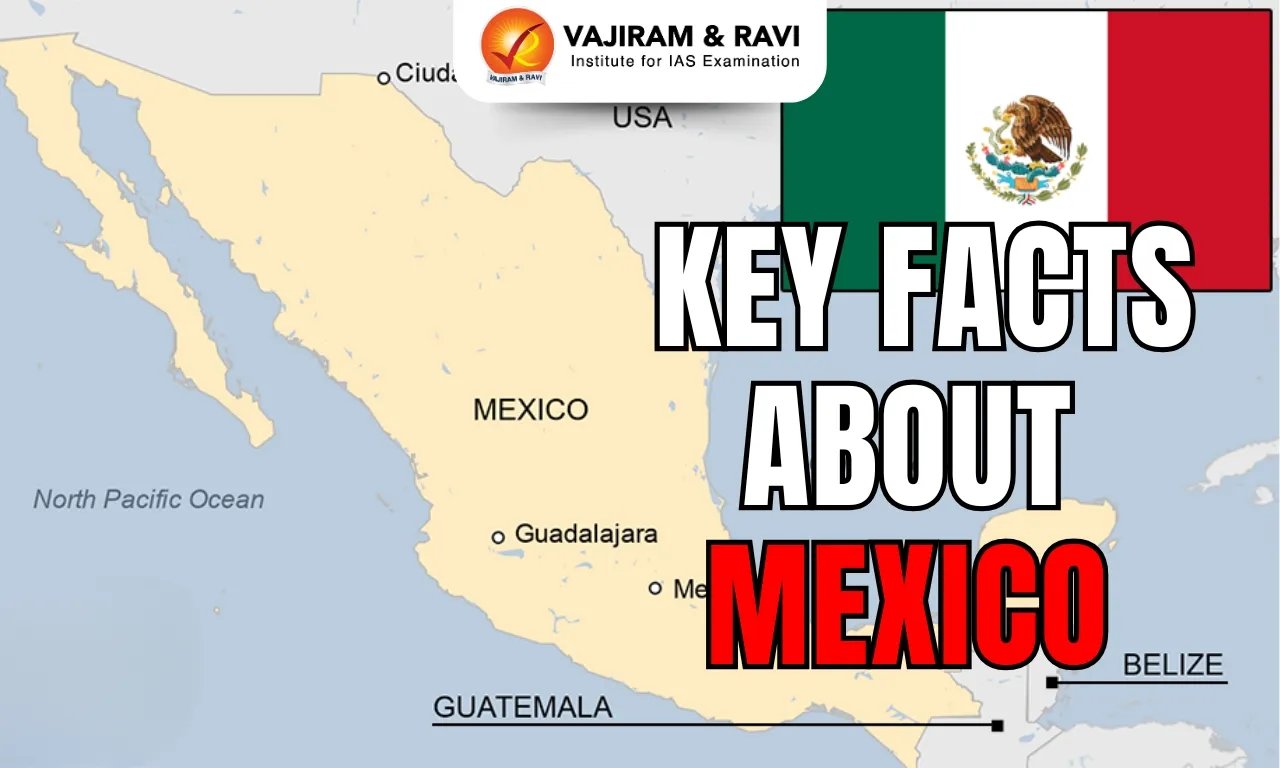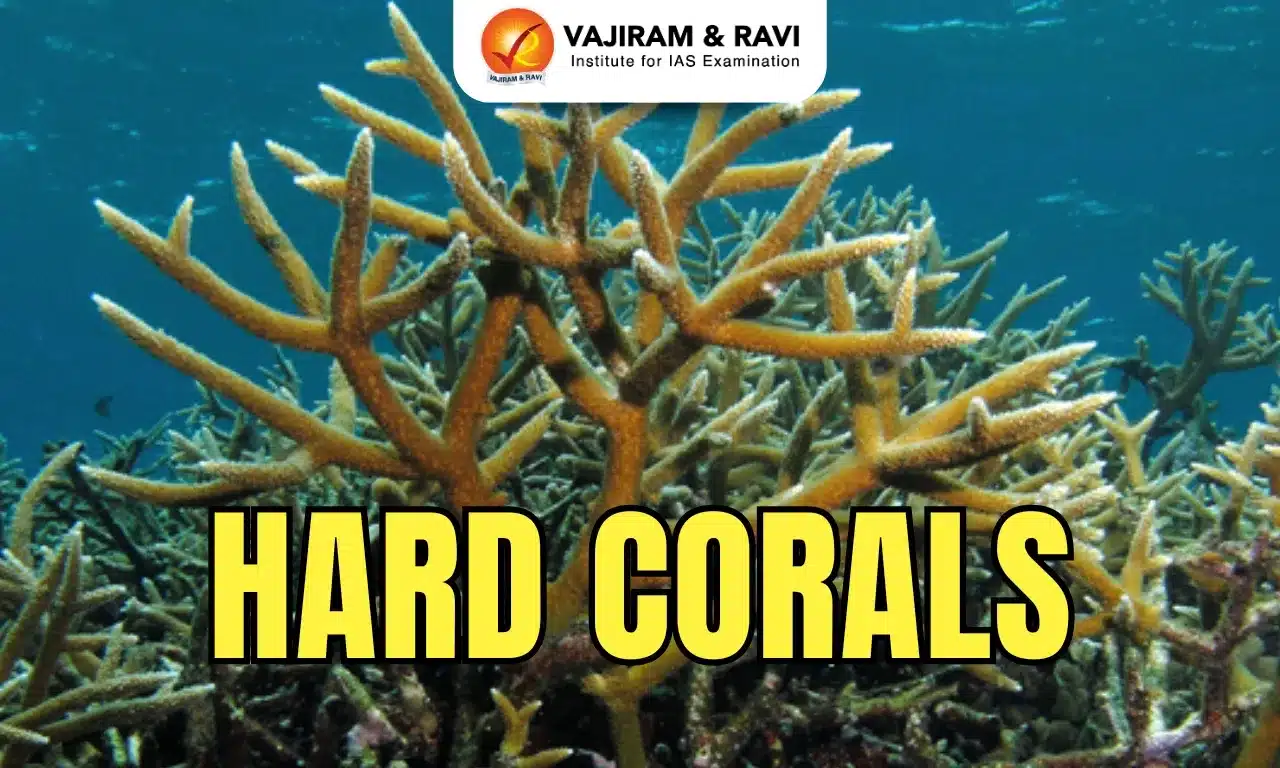Arctic Sea Latest News
- International observers have raised concerns about escalating tensions in the Arctic, warning that if left unchecked, they could eventually spark conflict in the region.
Introduction
- The Arctic, once an isolated and frozen frontier, is now emerging as a geopolitical hotspot.
- Climate change is rapidly melting ice caps, opening new sea routes and unlocking access to vast reserves of untapped natural resources.
- In response, global powers are ramping up their presence in the region, raising concerns about potential conflict and military escalation.
Strategic Significance of the Arctic
- The Arctic holds immense economic and strategic value.
- According to a 2009 U.S. Geological Survey, the region may contain 13% of the world’s undiscovered oil and 30% of its untapped natural gas reserves.
- It is also rich in rare earth elements, copper, phosphates, and valuable fishing grounds.
- However, many of these resources are beneath the seabed or locked under ice, and only becoming accessible due to global warming.
- Apart from resources, the melting ice is opening new commercial shipping routes.
- Notably, the Northeast Passage along Russia’s Arctic coast could shorten trade routes between East Asia and Europe by nearly 8,000 km.
- This route is particularly attractive to China, which envisions a “Polar Silk Road” that would boost maritime trade while bypassing traditional chokepoints like the Suez Canal.
Legal Framework and Territorial Claims
- Unlike the Antarctic, which is governed by a demilitarised treaty system, the Arctic falls under the United Nations Convention on the Law of the Sea (UNCLOS).
- Countries can claim seabed territories beyond their 200-nautical-mile Exclusive Economic Zones (EEZs) if they prove geological continuity with their continental shelf.
- Arctic territory is currently controlled by eight nations, the U.S., Canada, Russia, Denmark (via Greenland), Norway, Sweden, Finland, and Iceland, which collectively form the Arctic Council.
- While the Council aims to promote environmental protection and scientific cooperation, geopolitical rivalries have strained its unity.
- Countries like Canada, Denmark, and Russia have submitted overlapping territorial claims to the UN Commission on the Limits of the Continental Shelf. These claims, if accepted, would allow nations to control large areas of the Arctic seabed.
Emerging Tensions Among Arctic Stakeholders
- United States and Canada
- One flashpoint is the Northwest Passage, a potential shipping route through Canada’s Arctic archipelago.
- Canada asserts it as internal waters, while the U.S. insists it is an international strait with freedom of navigation.
- This disagreement remains unresolved and adds friction to U.S.-Canada relations.
- Additionally, U.S. President Donald Trump’s attempt to purchase Greenland from Denmark, a move justified on grounds of “national security”, stirred further controversy.
- Greenland already hosts the U.S. Pituffik military base, and American interest in the island has triggered stronger Danish and European security commitments.
- Russia
- Russia has the most developed Arctic infrastructure, including the world’s only nuclear-powered icebreaker fleet.
- It has also revived Soviet-era Arctic military bases and planted its flag on the Arctic seabed in a 2007 submarine expedition.
- Russian officials have even suggested that Norway’s Svalbard island should be under Moscow’s control, a claim that alarms NATO countries.
- Since the Ukraine conflict, Russia’s ties with other Arctic Council members have weakened, raising questions about the Council’s future effectiveness.
- NATO and China
- The entrance of Sweden and Finland into NATO has changed Arctic dynamics.
- The alliance has increased its presence in the region, including conducting exercises near the Russian border.
- China, despite not being an Arctic nation, declared itself a “Near-Arctic State” in 2018. It plans to build a nuclear-powered icebreaker and has expressed strong interest in Arctic shipping routes.
- Its collaboration with Russia, including joint naval drills, reflects shared strategic interests that concern Western powers.
Broader Implications for Global Security
- The Arctic is no longer a frozen wasteland; it is becoming a highly contested arena for energy politics, military posturing, and trade competitiveness.
- With limited legal frameworks and high strategic stakes, the region risks becoming a zone of future conflict if multilateral mechanisms fail to manage competing claims.
- Environmental concerns are also paramount. Increased shipping and drilling could accelerate ecological degradation in a region already under stress from climate change.
Conclusion
- As the ice retreats, the Arctic’s geopolitical relevance rises. The interplay of natural resource exploitation, territorial ambition, and strategic competition among major powers is transforming the region into a new frontier for global rivalry.
- Without robust international cooperation, the Arctic could become a flashpoint in an increasingly multipolar world.
Arctic Geopolitics FAQs
Q1. Which countries are part of the Arctic Council?
Ans. The Arctic Council includes the U.S., Canada, Russia, Denmark, Norway, Sweden, Finland, and Iceland.
Q2. Why is the Arctic becoming geopolitically important?
Ans. Due to melting ice, new trade routes and access to untapped oil, gas, and minerals are increasing its strategic importance.
Q3. What is the Northwest Passage dispute about?
Ans. Canada sees it as internal waters, while the U.S. claims it should be an international shipping route.
Q4. How is Russia asserting its Arctic dominance?
Ans. Through military bases, nuclear icebreakers, territorial claims, and symbolic acts like planting a flag at the North Pole.
Q5. What is the ‘Polar Silk Road’?
Ans. A shipping route proposed by China through the Arctic, aiming to connect East Asia to Europe more efficiently via the Northeast Passage.
Source: TH
Last updated on December, 2025
→ Check out the latest UPSC Syllabus 2026 here.
→ Join Vajiram & Ravi’s Interview Guidance Programme for expert help to crack your final UPSC stage.
→ UPSC Mains Result 2025 is now out.
→ UPSC Notification 2026 is scheduled to be released on January 14, 2026.
→ UPSC Calendar 2026 is released on 15th May, 2025.
→ The UPSC Vacancy 2025 were released 1129, out of which 979 were for UPSC CSE and remaining 150 are for UPSC IFoS.
→ UPSC Prelims 2026 will be conducted on 24th May, 2026 & UPSC Mains 2026 will be conducted on 21st August 2026.
→ The UPSC Selection Process is of 3 stages-Prelims, Mains and Interview.
→ UPSC Result 2024 is released with latest UPSC Marksheet 2024. Check Now!
→ UPSC Prelims Result 2025 is out now for the CSE held on 25 May 2025.
→ UPSC Toppers List 2024 is released now. Shakti Dubey is UPSC AIR 1 2024 Topper.
→ UPSC Prelims Question Paper 2025 and Unofficial Prelims Answer Key 2025 are available now.
→ UPSC Mains Question Paper 2025 is out for Essay, GS 1, 2, 3 & GS 4.
→ UPSC Mains Indian Language Question Paper 2025 is now out.
→ UPSC Mains Optional Question Paper 2025 is now out.
→ Also check Best IAS Coaching in Delhi
















